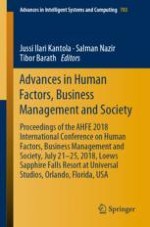2019 | OriginalPaper | Chapter
Cognitive Biases and Distorted Decision Making that Prevent Rational and Efficient Sports Management - Cross-Cultural Difference Between MLB and NPB
Author : Atsuo Murata
Published in: Advances in Human Factors, Business Management and Society
Publisher: Springer International Publishing
Activate our intelligent search to find suitable subject content or patents.
Select sections of text to find matching patents with Artificial Intelligence. powered by
Select sections of text to find additional relevant content using AI-assisted search. powered by
